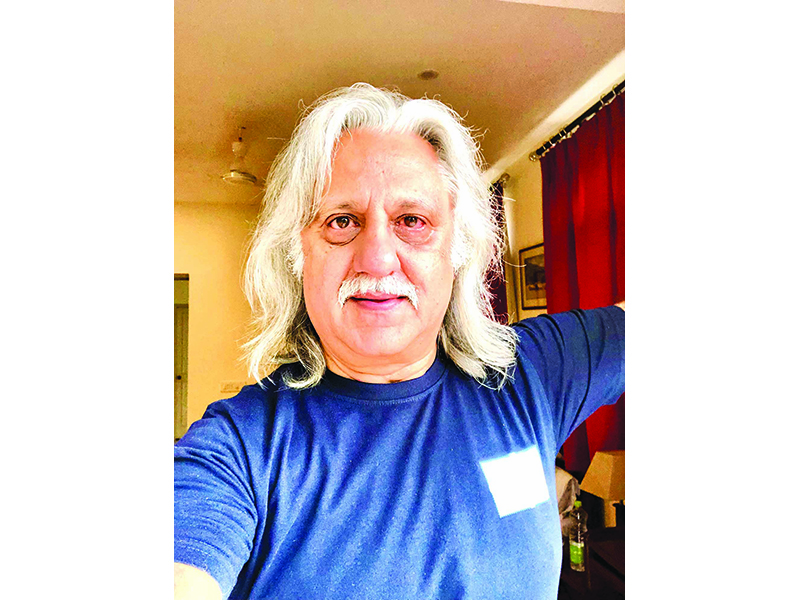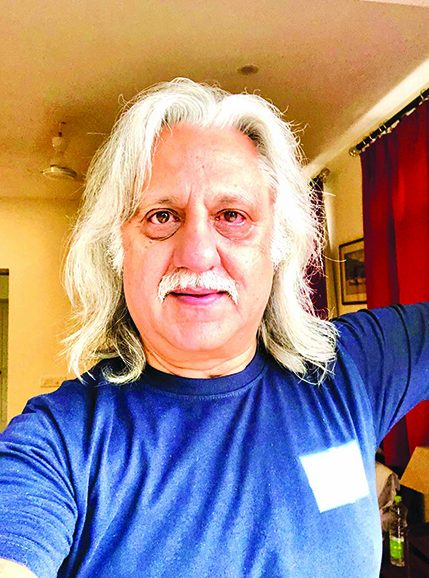— Yogi Kochhar is the Dharamshala-based former Director of Microsoft India and currently founder of YOL Happiness Foundation
Social and emotional learning is being removed from the human psyche as minds are being colonised by social media. Minds worldwide are being consumed in short 2-3 second bursts
The country’s politicians and leaders, especially of the ruling party in Delhi proclaim India’s demographic dividend — the world’s largest population of children and youth estimated at 500 million — from the roof tops and every available national and international platform. But encashing this dividend is conditional upon this huge mass of young people being well-educated, innovative and productive. Are our educationists — policy formulators, professors and teachers aware of this? Let’s peel the rhetoric.
The stark reality is that India with population that’s 4x of US has a GDP 15 percent of the US. It has to rattle a thinking mind as to how with hands and minds that are 4x of the US, we produce a GDP 1/8th the US . The checksum is simple: In India, we have lost our minds semantically and literally, and are continuing to lose them.
Following the advent of social media platforms — Facebook, Instagram,, Tik-Tok, Snapchat, and a host of other apps — an apocalypse in the form of AI (artificial intelligence) is here and with the impact of a tsunami, is about to erode all traditional ways of ‘knowing and doing’ education. An urgent response is required.
How did this happen? What’s to be done? To chart a response – a course of action — we first have to understand the causes of our present predicament.
Over a decade and a half ago, I was member of a cohort of best American tech companies engaged in deep discussion with eminent psychologists from Yale University. The top item on the agenda was how to increase the market share of participating companies. As the sun was setting and the sundowners were rolled out, a new paradigm emerged. A far more durable and profitable alternative to increasing market share, is to increase the mind share of customers. The mobile phone was identified as the tool kit to conquer minds worldwide. With a market cap of $1 trillion contributed by 25 billion users worldwide, every user is worth $400 to Facebook.
As schools conveniently turn a Nelson’s eye, students are spending an average of six hours daily scrolling, passively viewing videos, short reels and posts on Facebook and other social media apps, and keep flipping using the neuroplastic channels of the mind. This is further broken up in slices or neural synapses of 2-3 seconds per view. Even for institutions that don’t permit phones on campus, the moment students leave their campuses they get hooked to their mobile phones.
With minds engaged in neural switching every 2-3 seconds, IQ (intelligence quotient) is reduced to pattern recognition and EQ (emotional quotient) is replaced by emoticons. The use of filters to touch up pictures and create ‘selfies’ ushers in a sense of self-denial leading to trust issues between ‘I’ and ‘myself’ making the mind dense, culminating in trust issues between the person, peers, family, teachers and siblings.
As a result social and emotional learning doesn’t just suffer, it is systematically being removed from the human psyche as minds are colonised by new social media.
The purpose of education was to train young learners to acquire knowledge and apply it. Now with the advent of AI, traditional learning and teaching will be eclipsed and replaced making the entire process of personal teaching-learning redundant. The invasion of AI and VR is moving us deeper into a rabbit hole.
The objective of this essay is to provoke a progressive debate on the impact of social media on people and young people in particular. The truth is that our minds are being consumed in short bursts of 2-3 seconds during six hours spent daily on social media, leaving little time for creation and innovation.
The western world is already researching BANI (brittle, anxious, non-linear and incomprehensible) minds. Earlier this year Mark Zuckerberg, the proprietor of Facebook, Instagram and several other mind share consuming apps was arraigned before the US Congress and accused of having “blood on his hands”. Facebook is being sued by 40 state governments in the US. What’s being done to protect and reclaim the minds and mind shares of the world’s largest child and youth population in India?
One response is an online programme on happiness and mind mechanics designed by the Yol Foundation (yol.one) and approved by AICTE (All India Council of Technical Education) as an essential course for all technical higher education institutes countrywide. This app trains the user to retrieve and calibrate the mind on the same phone that erodes and hijacks it.
Equally effective for middle and secondary schools as project work, the app takes a gamified approach to reward users with tokens for engaging with important life priorities. It maintains a score card on 27 parameters in real time and enables users to re-calibrate their minds hijacked by social media into a state of balance. The app is a category creator whose efficacy has been acknowledged by Prof. Phoebe Koundouri, global head of climate change at the United Nations (“carbon in the climate is a reflection of carbon in the mind”).
Also read: How to Support Student Well-being and Academic Achievement

